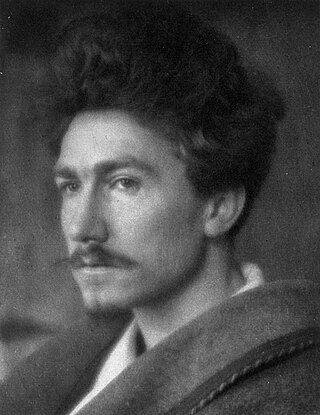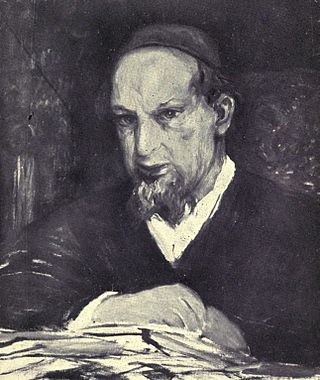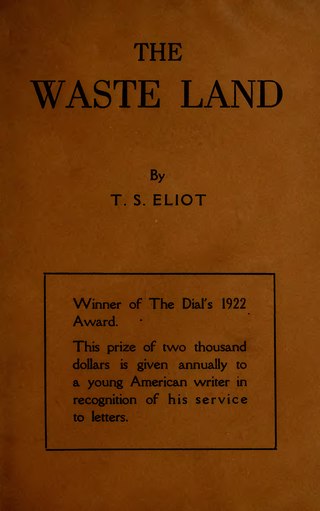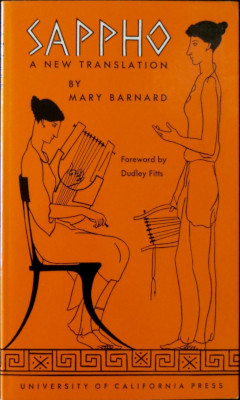Free verse is an open form of poetry, which in its modern form arose through the French vers libre form. It does not use consistent meter patterns, rhyme, or any musical pattern. It thus tends to follow the rhythm of natural speech.

Thomas Stearns Eliot was a poet, essayist, publisher, playwright, literary critic and editor. He is considered to be one of the 20th century's greatest poets, as well as a central figure in English-language Modernist poetry. His use of language, writing style, and verse structure reinvigorated English poetry. He is also noted for his critical essays, which often reevaluated long-held cultural beliefs.

Ezra Weston Loomis Pound was an expatriate American poet and critic, a major figure in the early modernist poetry movement, and a collaborator in Fascist Italy and the Salò Republic during World War II. His works include Ripostes (1912), Hugh Selwyn Mauberley (1920), and his 800-page epic poem, The Cantos.

Richard Aldington was an English writer and poet. He was an early associate of the Imagist movement. His 50-year writing career covered poetry, novels, criticism and biography. He edited The Egoist, a literary journal, and wrote for The Times Literary Supplement, Vogue, The Criterion, and Poetry. His biography, Wellington (1946), won him the James Tait Black Memorial Prize.

Imagism was a movement in early-20th-century poetry that favored precision of imagery and clear, sharp language. It is considered to be the first organized modernist literary movement in the English language. Imagism has been termed "a succession of creative moments" rather than a continuous or sustained period of development. The French academic René Taupin remarked that "it is more accurate to consider Imagism not as a doctrine, nor even as a poetic school, but as the association of a few poets who were for a certain time in agreement on a small number of important principles".

Hilda Doolittle was an American modernist poet, novelist, and memoirist who wrote under the name H.D. throughout her life. Her career began in 1911 after she moved to London and co-founded the avant-garde Imagist group of poets with American expatriate poet and critic Ezra Pound. During this early period, her minimalist free verse poems depicting Classical motifs drew international attention. Eventually distancing herself from the Imagist movement, she experimented with a wider variety of forms, including fiction, memoir, and verse drama. Reflecting the trauma she experienced in London during the Blitz, H.D.'s poetic style from World War II until her death pivoted towards complex long poems on esoteric and pacifist themes.

Remy de Gourmont was a French symbolist poet, novelist, and influential critic. He was widely read in his era, and an important influence on Blaise Cendrars and Georges Bataille. The spelling Rémy de Gourmont is incorrect, albeit common.

Modernist poetry in English started in the early years of the 20th century with the appearance of the Imagists. Like other modernists, Imagist poets wrote in reaction to the perceived excesses of Victorian poetry, and its emphasis on traditional formalism and ornate diction.
William Hugh Kenner was a Canadian literary scholar, critic and professor. He published widely on Modernist literature with particular emphasis on James Joyce, Ezra Pound, and Samuel Beckett. His major study of the period, The Pound Era, argued for Pound as the central figure of Modernism, and is considered one of the most important works on the topic.

Thomas Ernest Hulme was an English critic and poet who, through his writings on art, literature and politics, had a notable influence upon modernism. He was an aesthetic philosopher and the 'father of imagism'.
The Dial was an American magazine published intermittently from 1840 to 1929. In its first form, from 1840 to 1844, it served as the chief publication of the Transcendentalists. From the 1880s to 1919 it was revived as a political review and literary criticism magazine. From 1920 to 1929 it was an influential outlet for modernist literature in English. In January 2023, The Dial was revived once again as a magazine of international writing and reporting.

Literary modernism, or modernist literature, originated in the late 19th and early 20th centuries, and is characterized by a self-conscious separation from traditional ways of writing in both poetry and prose fiction writing. Modernism experimented with literary form and expression, as exemplified by Ezra Pound's maxim to "Make it new." This literary movement was driven by a conscious desire to overturn traditional modes of representation and express the new sensibilities of the time. The immense human costs of the First World War saw the prevailing assumptions about society reassessed, and much modernist writing engages with the technological advances and societal changes of modernity moving into the 20th century. In Modernist Literature, Mary Ann Gillies notes that these literary themes share the "centrality of a conscious break with the past", one that "emerges as a complex response across continents and disciplines to a changing world".
The ideogrammic method was a technique expounded by Ezra Pound which allowed poetry to deal with abstract content through concrete images. The idea was based on Pound's reading of the work of Ernest Fenollosa, especially The Chinese Written Character as a Medium for Poetry, composed by Fenollosa but edited by Pound after the author's death, 1908.
The National Poetry Foundation (NPF) is a book publisher founded in 1971 by Carroll F. Terrell who built its reputation with Burton Hatlen at the University of Maine in Orono. Today it publishes poetry by individual authors as well as both journals and scholarship devoted to Ezra Pound and poets in the Imagist and "Objectivist" traditions. It has also positioned itself as a center and host for international conferences on modern poetry.
Richard Sieburth is Professor Emeritus of French Literature, Thought and Culture and Comparative Literature at New York University (NYU). A translator and editor, Sieburth retired in 2019 after 35 years of teaching at NYU and 10 years at Harvard.

The Waste Land is a poem by T. S. Eliot, widely regarded as one of the most important English language poems of the 20th century and a central work of modernist poetry. Published in 1922, the 434-line poem first appeared in the United Kingdom in the October issue of Eliot's magazine The Criterion and in the United States in the November issue of The Dial. Among its famous phrases are "April is the cruellest month", "I will show you fear in a handful of dust", and "These fragments I have shored against my ruins".
Hamlet and the New Poetic is a book of literary criticism on James Joyce, T. S. Eliot and Hamlet by American professor William H. Quillian, originally published in 1983.

Stephen Romer, FRSL is an English poet, academic and literary critic.

The Spirit of Romance is a 1910 book of literary criticism by the poet Ezra Pound. It is based on lectures he delivered at the Regent Street Polytechnic in London between 1908 and 1909 and deals with a variety of European literatures. As with Pound's later, unfinished poem The Cantos, the book follows "a pattern, at once historical and atemporal, of cultural beginnings and rebeginnings".

Sappho: A New Translation is a 1958 book by Mary Barnard with a foreword by Dudley Fitts. Inspired by Salvatore Quasimodo's Lirici Greci and encouraged by Ezra Pound, with whom Barnard had corresponded since 1933, she translated 100 poems of the archaic Greek poet Sappho into English free verse. Though some early reviewers criticised Barnard's choice not to use a more structured meter, her translation was both commercially and critically successful, and her work has inspired subsequent translators of Sappho's poetry.












